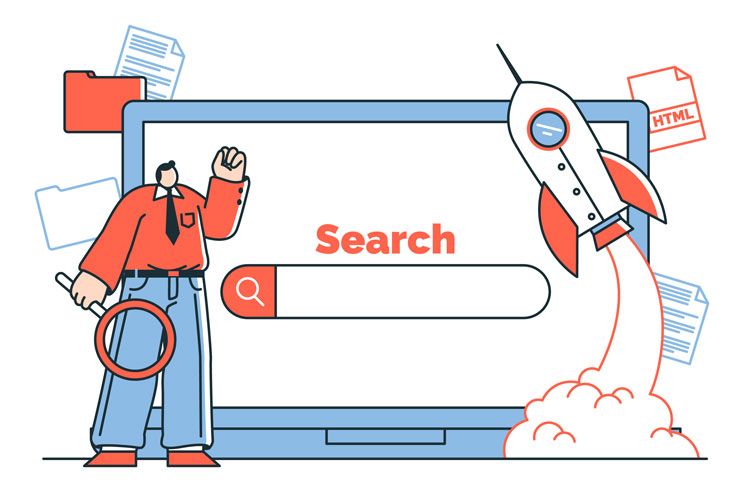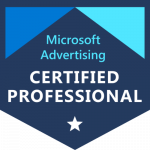
A Beginner’s Guide to SEO Content Optimization for Small Businesses
In modern business, having an online presence is crucial for success. However, simply having a website is no longer enough. To attract potential customers and stay ahead of the competition, you need to optimize your content for search engines.
This process, known as SEO (Search Engine Optimization), can seem daunting at first, but with the right approach, you can enhance your visibility and drive more traffic to your site through search results.
Here’s a beginner’s guide to help you get started:
Understanding SEO Basics
SEO is the practice of improving the quality and quantity of website traffic by increasing a website’s visibility to search engine users. It involves various techniques and strategies to make your content more appealing to Google and other search engines. You can rank higher on search engine results pages (SERPs) and attract more organic traffic. SEO helps search engines understand your content better and deliver it to users searching for related topics.
Importance of SEO for Small Businesses
SEO is crucial for small businesses as it helps increase their ranking factor on SERPs. By optimizing your content, you can attract more organic traffic, which is visitors that come to your site through search engine results rather than paid advertisements. Higher visibility means more potential customers and greater opportunities for business growth. Additionally, a strong SEO strategy helps build credibility and trust with your audience, making it easier to convert visitors into loyal customers.
Keyword Research
Keywords are the terms and phrases people enter into search engines, and identifying the right keywords is the foundation of SEO success. Use tools like Google Keyword Planner, Ahrefs, or SEMrush to find keywords that are relevant to your business and have a good search volume but low competition.
Tips:
- Focus on long-tail keywords: These are longer, more specific phrases that are less competitive and more likely to convert.
- Consider user intent: Think about what your potential customers are looking for and tailor your keywords to match their search queries.
Optimizing On-Page Elements
On-page SEO involves optimizing individual web pages to rank higher and earn more relevant search engine traffic. Here are some key elements to focus on:
Title Tags and Meta Descriptions
- Title Tag: The clickable headline appears in search engine results. Make it compelling and include your main keyword.
- Meta Description: A brief summary of the page content. It should be informative and entice users to click through to your site.
Headers and Content
- Headers (H1, H2, H3): Use these to structure your content and make it easier for search engines to understand. Include keywords naturally within these headers.
- Content: Ensure your content is high-quality, informative, and provides value to the reader. Use relevant keywords seamlessly in your content and avoid keyword stuffing.
URLs
- Keep URLs short, descriptive, and keyword-rich. Avoid using unnecessary parameters or special characters.
Creating High-Quality Content
Content is king in the world of SEO. Regularly publishing high-quality, valuable content can help you build authority and attract backlinks, both of which are important ranking factors.
Tips:
- Blogging: Start a blog on your website and publish articles related to your industry. This can help you target a wider range of keywords and establish your expertise.
- Multimedia: Use images, videos, and infographics to make your content more engaging. Optimize these elements with appropriate alt text and descriptions.
Off-Page SEO and Building Backlinks
Off-page SEO refers to actions taken outside of your own website to impact your rankings within search engine results. Building backlinks is a critical aspect of off-page SEO. Backlinks are links from other websites to your site. They act as votes of confidence and can significantly boost your SEO rankings.
Tips:
- Guest Blogging: Write articles for other reputable websites in your industry and include a link back to your site.
- Networking: Build relationships with other businesses and influencers who can link to your content.
- Content Promotion: Share your content on social media and other platforms to increase its reach and the likelihood of earning backlinks.
Technical SEO
Technical SEO involves optimizing your website’s backend structure to make it easier for search engines to crawl and index your site.
Tips:
- Site Speed: Ensure your website loads quickly. Use tools like Google PageSpeed Insights to identify and fix issues.
- Mobile-Friendliness: Make sure your site is mobile-friendly, as a significant portion of web traffic comes from mobile devices.
- Sitemap and Robots.txt: Create and submit a sitemap to search engines. Use robots.txt to control which pages you want to be crawled.
Local SEO
Local SEO focuses on optimizing your online presence to attract more business from relevant local searches. This is especially important for small businesses serving specific geographical areas.
Tips:
- Google My Business: Claim and optimize your Google My Business listing. Ensure your business name, address, and phone number are consistent across all online platforms.
- Local Keywords: Include local keywords in your content and meta descriptions. For example, “best coffee shop in [your city].”
- Reviews: Encourage satisfied customers to leave positive reviews on Google and other review sites. Reviews can influence your local search engine rankings.
Monitoring and Analytics
Regularly monitor your SEO efforts to see what’s working and what’s not. Use tools like Google Analytics and Google Search Console to track your performance and make data-driven decisions.
Tips:
- Track Rankings: Monitor how your pages rank for your target keywords.
- Analyze Traffic: Look at where your traffic is coming from and which pages are performing best.
- Adjust Strategy: Based on your findings, adjust your SEO strategy to improve your results continually.
Rank in Search Engine Results
SEO content optimization is an ongoing process that requires patience and persistence. By understanding the basics and implementing these strategies, small businesses can improve their online visibility, attract more visitors, and ultimately grow their customer base.
Remember, the key to successful SEO is providing value to your audience while staying up-to-date with the industry’s latest trends and best practices.
Get Help from CS Design Studios
At CS Design Studios, we are leading SEO experts with extensive experience in every aspect of content optimization. Our team is dedicated to helping small businesses like yours achieve their online goals.
Whether you need help with keyword research, on-page SEO, content creation, or building backlinks, we have the expertise to guide you through every step.
Contact CS Design Studios today to discover how we can help elevate your business’s online presence and drive sustainable growth. Let us take care of your SEO needs so you can focus on what you do best – running your business. Visit our website to get started.



